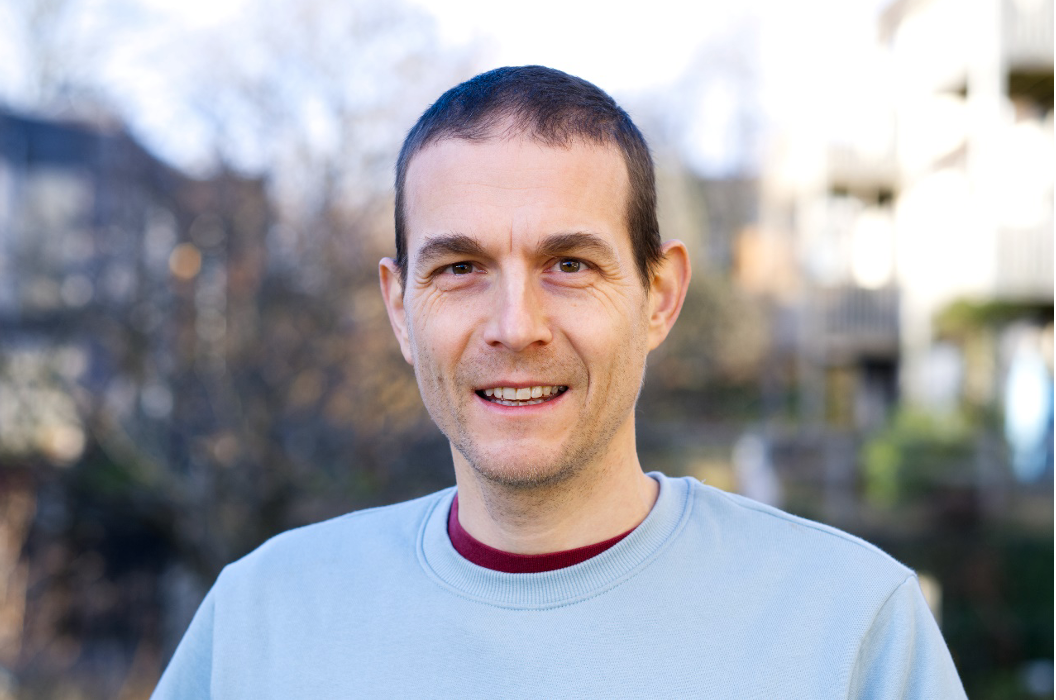Researcher of the Month, April 2024: Stefan Skrimshire

Our Researcher of the Month is PRHS colleague and CRPL member, Associate Professor Dr Stefan Skrimshire.
Tell us a little about your ‘research journey’ – how did you get to where you are right now?
My research from undergraduate to the present has explored the ways theology and philosophy inform cultures of protest and resistance. I wrote a BA dissertation on Kierkegaard and social activism; a Masters dissertation on Foucault and civil disobedience; and a PhD thesis on utopian activist responses to politics of fear in the war on terror. As a post-doc I shifted my attention (and activities) to climate change and apocalyptic imagination. For the past 8 years the focus has been on the religious dimensions of the global extinction crisis. This latter phase has landed me in the interdisciplinary fields of environmental humanities and extinction studies.
Who, or what, sparked your interest to work on your particular research area?
I want to know how political theology can help us understand moments of global crisis - to ask which thinkers and what kind of thinking helps us live “in dangerous times”, to paraphrase Hannah Arendt. That has always struck me as one of the most important jobs for my disciplines, and academia generally. That was inspired in part by my own involvement in UK direct action movements – first peace and anti-nuclear, and then climate activism. In both contexts religious faith has played a major role. I’ve always observed a desire amongst activist communities themselves to understand better the religious and spiritual dimensions of this moment of crisis, the sorts of action it calls for and the visions of the future it can inspire. Public perceptions of religion’s relevance for environmental thought tend to polarize between two opposing extremes: a naïve, otherwordly hope on the one side, and sensationalist, apocalypticist despair on the other. I see my job as helping people navigate between and away from those stereotypes in their explorations of faith and action.
What are you currently, or about to start, working on?
I’m coming to the end of a bunch of extinction-related research projects, and putting the finishing touches to some writing that came out of them. A book I co-edited with Jeremy Kidwell (Birmingham University), Extinction and Religion (Indiana University Press, 2024) came out in January; and he and I have begun collaborating on a new book about Christian activism in a time of climate failure. I have a first draft of a new monograph, Eschatology for Times of Extinction, which tries to rescue the politically constructive concept of living in “end times” as a commitment to living compassionately in the present. After that, I’m not sure. The work of extinction studies is important, but it has an emotional and psychological cost that probably hasn’t yet sunk in for many academics. It might be time for me to step back for a while, take a breath, reflect on where to put my energies next and figure out which positive contributions I can make going forward. I know that I want to continue – and increase – working alongside people least represented and most affected by the dangerous times in which we live. My recent projects have taught me that end-time imagination, like so many other legacies of Christian thought, is a powerful carrier of privelege and power (exactly whose world is ending, right now?). So it really matters who we are talking to / with about that type of imagination, and which experience of the world it reflects.
In what way(s) do you feel your research examines the role of religion in public life and the relationship between the two?
My recent research projects allowed me to look at some quite direct expressions of religion in public life. For instance, I worked with Extinction Rebellion activists exploring their uses of religious liturgy in eco-grief rituals; I organised workshops for Buddhist and Christian eco-activists to explore their respective understandings of ‘deep adaptation’; I worked with museums and artists on public engagements (including faith communities) with mass extinction; I commissioned visual and performing artists to work with refugee and asylum seeker groups to explore the spiritual, affective and cultural resonances for them of the extinction crisis as loss of home.
